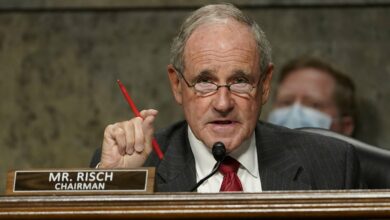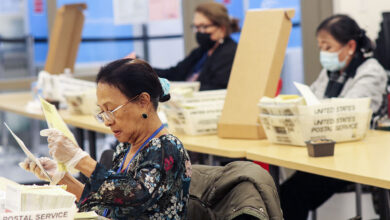I write this article not as the leader of an opposition party but as an Egyptian citizen concerned about my country’s affairs and as a researcher who has studied Egypt’s political system for a long time.
I believe it's the duty of all Egyptians to reflect on the Wafd Party’s recent decision to participate in the upcoming parliamentary election, in defiance of the boycott call. The November election is of unprecedented importance, for it’s expected to shape the immediate political future of Egypt. Under Nasser, Egyptians knew that their next president would be Sadat, and under Sadat they knew Mubarak would take power next. Today, however, Egypt awaits the unknown because neither the identity of the next leader nor the features of our future political regime are easy to predict.
Recognizing the significance of this election, the Egyptian opposition–led by the Coalition of Egyptian Opposition Parties (CEOP) which includes the Wafd, Tagammu, Nasserist, and Democratic Front parties–called upon the government to provide genuine guarantees for free and fair elections. The National Association for Change (NAC), founded by reform advocate Mohamed ElBaradei, took a similar position and proposed seven demands for change.
The Wafd Party chose not to get involved with the NAC, but it has been very active with the CEOP in formulating other pro-reform documents, which include demands for transparent elections with independent judicial oversight.
In March 2010, the Wafd Party organized a conference to discuss constitutional amendments. The conference participants concluded that Egypt's existing constitution had to be amended and recommended that Egypt adopt a proportional representation voting system.
In August, the Wafd Party presented a document to the CEOP in which it outlined the conditions the party viewed as necessary for the election process to be fair. The paper included suggestions for how the Supreme Electoral Commission should function, how constituencies should be determined and how election campaigns should be conducted. It also affirmed the right of NGOs and the press to monitor elections.
Surprisingly, however, neither the ruling National Democratic Party (NDP) nor the government has responded to any of the Egyptian opposition’s demands. The only official comment came from Safwat al-Sharif, secretary general of the NDP, in September when he said that the NDP shares the same vision as some of the opposition parties. He then praised the 2007 amendment to the Law on Exercising Political Rights, which led to the formation of the Supreme Electoral Commission. Fouad Badrawi, vice president of the Wafd Party, responded, saying that al-Sharif’s comments were “too general and do not meet the ambitions of political parties.”
The Wafd Party, like the other opposition parties, clearly believes the NDP has not taken the demands of the opposition seriously enough. So why has the Wafd decided to participate in the election?
To make matters worse, the Wafd Party’s sudden change of course will likely impact other undecided political forces, most importantly the Muslim Brotherhood. The Brotherhood have a complicated set of calculations to make and they generally put their own interest above the rest. But they are also keen on maintaining their legitimacy among opposition supporters. The Wafd’s turnaround can encourage the more opportunistic elements of the Brotherhood to favor electoral participation, unless the more far-sighted within the group have their way.
The Tagammu and Nasserist parties have also decided to participate in the election–without any promises from the government for a fair process–but the weight of these two parties is insignificant compared to the Wafd Party and the Brotherhood.
While the Wafd’s decision to participate was approved in a vote by 57 percent of their members, a considerable 43 percent voted the other way. This should offer some reassurance that the party has not completely lost its way.
An election boyott supported by the Wafd Party and the Muslim Brotherhood would have placed tremendous pressure on the regime and could have secured the Wafd Party's place as the leader of democratic reform in Egypt. Instead, the Wafd has decided to legitimize on the NDP and the electoral process, which everyone expects to be mired in fraud. By so doing, not only has the Wafd done a disservice to its long history of struggle but it has also let Egypt down.
Translated from the Arabic Edition.
Ossama ElGhazaly Harb is the leader of the Democratic Front Party.




